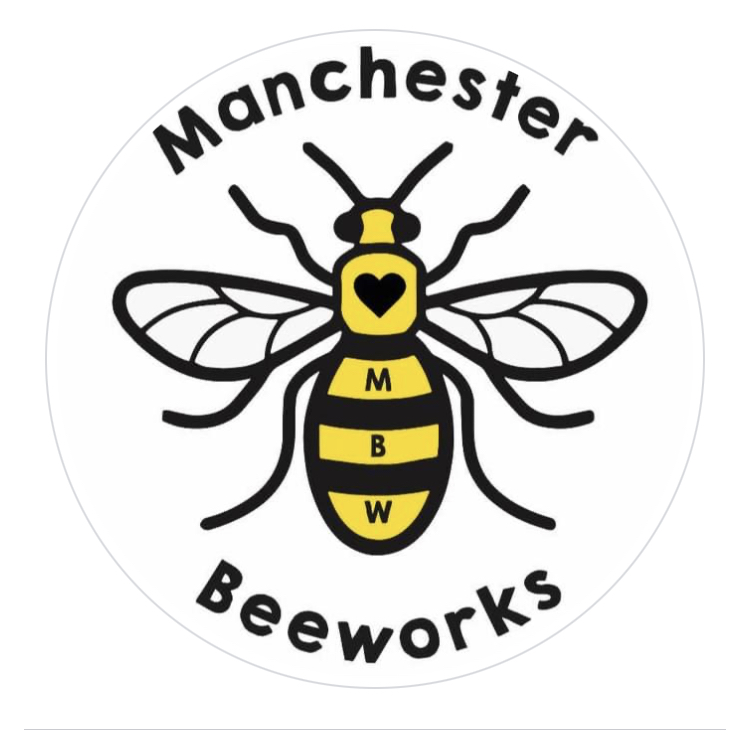Bee-lieve in the Buzz: Uncovering Sustainable Beekeeping with Manchester Bee Works!
- Manchester Bee Works
- Feb 25, 2025
- 3 min read
The excitement around sustainable beekeeping is growing, as more people realise just how crucial bees are for our planet. These tiny creatures not only produce honey but also help pollinate many of the foods we eat. With the rise of eco-consciousness, sustainable practices are becoming essential. Manchester Bee Works is a strong believer of this movement, implementing methods that safeguard both bees and the environment. In this post, we will look into the benefits of sustainable beekeeping practices and their positive effects on our ecosystem.
The Sweet Perks of Sustainable Beekeeping
Sustainable beekeeping means more than just honey production; it’s an approach that benefits both bees and the environment. Let's explore some key advantages:
Healthier Bee Colonies
Sustainable practices lead to healthier bee colonies. For example, beekeepers who avoid harmful chemicals could see an increase in colony lifespan and significantly higher honey yields. By using natural alternatives, these beekeepers reduce stress on bees, allowing them to thrive.
Healthy bee populations are vital for pollination, affecting over one-third of the crops we consume. By nurturing bees, we not only increase honey quality but also support food production systems.
Biodiversity and Ecosystem Stability
Sustainable beekeeping fosters biodiversity. When beekeepers plant diverse flora, they create ecosystems that provide bees with a range of nutrients. Research shows that honeybee health improves by up to 30% when they have access to diverse plant species.
This diversity benefits other wildlife too. When bee populations flourish, they help support various plant species, ensuring a stable and interconnected ecosystem.
Quality Over Quantity
In sustainable beekeeping, quality of honey is prioritized over sheer volume. Beekeepers often produce smaller batches of high-quality honey, which is rich in flavour and nutrients. For instance, artisanal honey can fetch prices that are 50% higher than mass-produced options.
Consumers increasingly prefer these premium products, creating a strong community around sustainable beekeeping. This connection between consumers and beekeepers fosters trust and encourages more people to support local initiatives.
The Harmony with the Environment
Sustainable beekeeping practices have a significant positive impact on the environment. Let's dive into how these methods contribute to a healthier planet:
Reduction of Chemical Inputs
By focusing on an organic approach, sustainable beekeepers minimise the use of harmful pesticides and fertilizers. This shift protects not only the bees but also surrounding wildlife. For instance, studies show that areas with organic farming practices experience a reduction in chemical runoff, leading to cleaner water and healthier soils.
Reducing chemicals also nurtures local ecosystems, supporting wildlife that is often harmed by conventional agricultural methods.
Climate Change Mitigation
Bees are integral to carbon sequestration, helping to maintain plant health and capture carbon dioxide. Sustainable practices not only protect these vital populations but also make them more resilient to environmental changes. For example, studies suggest that beekeepers using sustainable methods can see up to a 25% increase in bee survival rates during extreme weather events.
By focusing on resilience, sustainable beekeepers are playing an essential role in the fight against climate change.
Manchester Bee Works' Commitment to Sustainability
Manchester Bee Works is a pioneering force in sustainable beekeeping. Their dedication shines through in several initiatives:
Organic Practices
At Manchester Bee Works, using organic methods is fundamental. We implement natural pest management strategies and maintain bee-friendly environments. This commitment has resulted in honey that reflects the unique biodiversity of the Manchester region, with a flavour profile that highlights local flora.
Sustainable beekeeping acknowledges the intricate relationships between bees, plants, and humans, emphasising respect for nature.
Supporting Local Ecosystems
An outstanding commitment of Manchester Bee Works is their active support for local ecosystems. They plant a range of native flowers, providing crucial forage for bees. In doing so, they not only enhance bee populations but also improve the local environment’s health.
Through partnerships with farmers and landowners, Manchester Bee Works promotes practices that ensure both wildlife and agriculture can thrive side by side.
A Call to Action for Our Future
As we face increasing environmental challenges, embracing sustainable beekeeping becomes essential. The growing interest in these practices underscores our responsibility to support our vital pollinators and protect our ecosystem.
With organizations like Manchester Bee Works leading the way, the future for bees and our planet looks promising. By believing in sustainable practices and participating in them, we can help ensure the survival of these remarkable creatures for many years to come.
Let’s come together to champion sustainable beekeeping and forge a healthier relationship with nature!







Comments